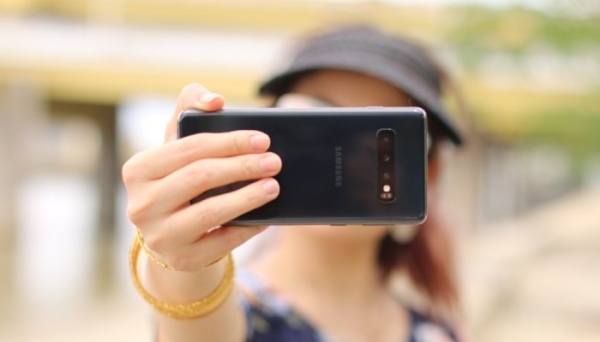
A recent survey conducted by StyleSeat in the United States reveals that a significant proportion of the population would like to impose an age limit on their use, or even ban them outright. The beauty and wellness booking platform asked 700 Americans to test the “Bold Glamour” filter, which guarantees a flawless face, and then asked them about their perception of the beauty filters popular on social networks. And the results were clear: three out of five respondents thought they were bad for their mental health, and 70% feared they would have a negative impact on self-esteem.
Contrary to popular belief, younger people are not more inclined to turn to beauty filters when posting photos or videos on social networks, or at the very least they fear their effects as much or more than other demographics. Nearly three quarters of Generation Z respondents (72%) think that these filters have a negative impact on mental health. And with good reason: these applications, which modify users’ appearance, often to meet certain unrealistic beauty standards, could be linked to low self-esteem or even body dysmorphic disorder, which is characterized by an obsession with non-existent or imperceptible physical defects. The survey reveals that one in three Americans would like to look the same in real life as they do when they look at themselves through a beauty filter.
Implement age restrictions
In this regard, Americans are even more concerned about the impact of beauty filters on the mental health of younger people. Many social platforms have rules and restrictions in place for younger users, especially teenagers and children under the age of 16 (the age required to register depends on the country of origin). But this does not apply to beauty filters. For this reason, one in three Americans now believe that beauty filters should be subject to an age requirement, and one in five believe they should be banned outright.
It’s important to keep in mind that beauty filters totally modify appearance according to very specific stereotypes: a flawless complexion, a slimmed-down nose, a perfectly sculpted chin and cheekbones, luminous eyes… A perception of beauty far removed from reality, particularly when taking the diversity of the world’s population into account. So it’s hardly surprising to learn that, after viewing their faces through the “Bold Glamour” filter, around 20% of those surveyed said they felt less sure of themselves. And an overwhelming majority (80%) already believe that this type of filter has transformed beauty standards.
The impact of social media on mental health and self-esteem is a concern not only in the USA, as shown by a survey conducted by Edelman DXI for Dove, in collaboration with Mental Health Europe, and the e-Enfance association, published last spring. Carried out among the general population, as well as parents, teenagers and experts in youth mental health, it highlighted the growing concern of healthcare professionals about the use of filters in France. More than half of them (52%) felt that content encouraging the intensive use of filters could be the cause of feelings of anxiety, as could content showing perfect bodies or bodies far removed from reality (44%).
